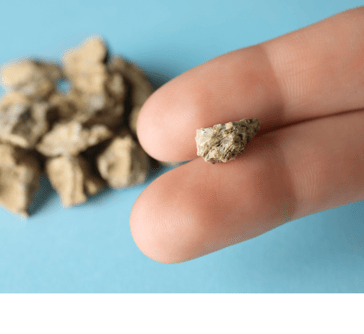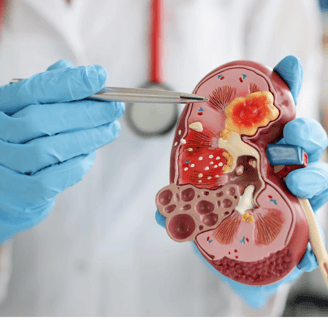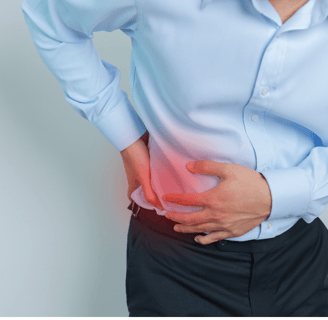Crafting Diet, Delivering Health
Kidney stones disease
what are kidney stones, types of kidney stone,. Calcium oxalate stones, uric acid stones, Food that decreases the formation of stone ,relation of calcium with stone, sauna and heavy exercise increases stone formation. List of food high in oxalates.
Dr Fatema Haidry ( Masters in Food and Nutrition)
9/23/20245 min read


KIDNEY STONES
Kidney stones are known by many names such as Renal calculus disease( renal - kidney, calculus-stone) nephrolithiasis (nephron- kidney, lithiasis -stone ) or urolithiasis. Our body excretes liquid waste in the form of urine, now if the waste is too much and liquid is less , then the waste starts depositing in the form of crystals , which in turn gives rise to kidney stones
As the name indicates, in kidney stone disease a crystal-like solid piece of material develops anywhere in the urinary tract. When we talk about the size of kidney stones, it can be as small as grain of sand or as large as a pea. Kidney stones may be smooth or jagged and are usually yellow or brown. Usually small kidney stones may pass through your urinary tract on its own, causing little or no pain. But if the stone is big in size , and get obstructed in the ureter , it causes excruciating, intermittent pain with or without bleeding , pain radiates from the flank to the groin or to the inner thigh, check with the urologist immediately if you experience such type of pain.
TYPE OF KIDNEY STONES
Do all kidney stones are the same ?NO , It is very important to know , type of kidney stone because your diet plan and your treatment depends on it.
There are 4 different types of kidney stones:
Calcium oxalate stones -the more common calcium stones, account for 75%-80% of global stone prevalence in most countries.
Uric acid stones- are the third most common type of stone in the globe. These stones are made of different materials and have different causes
struvite stones
cystine stones.
Who is prone to get kidney stone disease ?
Significant key risk factors that play the greatest role in kidney stone formation can be divided into 4 major categories:
Dietary
Genetic,
Environmental
lifestyle
Diet -The 3 main micronutrient required for the formation of kidney stone are sodium ,calcium and oxalate
Sodium-When we hear the word sodium ,the first thing which comes to our mind is sodium chloride (common salt) , but sodium is also present in the form of sodium bicarbonate. Nowadays, which is widely used in processed food .How does sodium increase chances of getting kidney stones? Extra sodium causes you to lose more calcium in your urine ,it also has the tendency to attract surrounding water molecules, thus influence the degree of supersaturation of other minerals and in turn raises the concentration of all dangerous crystalline salts in urine like calcium oxalate , calcium phosphate, and uric acid crystals
Oxalate-Oxalate is an organic waste molecule ,that when in high levels, can be very dangerous when found in foods. Oxalate easily binds with calcium in the kidneys to form calcium oxalate crystals .Urinary oxalate levels are highly influenced by dietary intake of oxalate in foods. Foods high in oxalate are usually plant based; however, oxalate can also be formed through the metabolism of amino acids and the breakdown of vitamin C
Calcium- If dietary calcium levels are normal, the body absorbs less calcium in the small intestine and more in the distal tubule of the nephron; however, if there are low levels of calcium in the diet, the body will compensate by releasing more calcium into the blood from calcium storage locations like the bone. The more calcium is absorbed in the small intestine and very little is absorbed in the kidney, leading to higher concentrations of calcium ions in the urine. Calcium will bind to these stone forming molecules like oxalate and phosphate anywhere in the body, but they are easily excreted when they bind in the intestinal tracts, which can be improved by higher dietary levels
ANIMAL PROTEIN- If excessive animal protein is consumed in the diet, the body will begin to metabolize the proteins. Animal proteins have much higher concentrations of hydroxyproline and proline. When the body metabolizes amino acids ,it converts proline and hydroxyproline into harmful organic waste molecules like oxalate. These oxalates find its way into the kidney , through normal filtration function. These increased levels of waste molecules in the urine are more likely to crystallize with surrounding calcium ions that have not been absorbed. Additionally, amino acid metabolism increases the acidity of the surroundings. The metabolism of animal proteins pose a double-sided threat to the development of nephrolithiasis by increasing two precursors: lowering the pH of the body and urine and increasing the blood concentrations of organic waste molecules that crystallize with ionic calcium.
SUGARS AND SWEETENERS-The sugar and sweeteners in an individual’s diet can play an important role in many metabolic disorders Both sugar and artificial sweeteners reduce water availability in urine ,concentrated urine again raises the risk for crystal formation.
Temperature and humidity-temperature and humidity plays an important role in the human body. The urinary system dramatically changes based on the temperature of an individual’s surrounding environment ,temperature plays a significant role in reducing the urine volume excretion and thus altering urinary ion concentration ,sweating !! Saunas and heavy exercise may sound very trending and good for your health , but they may lead to kidney stones ,but how? What is the relation of saunas with the kidney ? dehydration is the answer for this,, loss of water due to sweating , due to heat or heavy exercise leads to dehydration, less urine production , the less you urinate there are more chances of stone causing minerals to settle and get deposited in your urinary tract , now this doesn't mean you stop going to saunas or doing heavy exercises , the only precaution you need to take is drink plenty of water throughout the day , that's it !!
Genetics A familial history of kidney stone disease is one of the strongest causes of penetration for kidney stone formation. Kidney stones develop about 3 times more frequently for individuals with positive family history
Medication
Medications that increase the possibility of stone formation include acetazolamide, vitamin K, vitamin D, Ca2+ supplements, beta blockers such as warfarin, and lithium chloride.
LIFESTYLE-0besity is not only linked to cardiovascular disease, but also chronic kidney disease .Obesity increases the risk of uric acid stone formation. Along with urinary calcium stone, obesity affects the overall excretion levels of uric acid, sodium, calcium, and citrate increasing the risk for developing uric acid stones
Physical activity - Physical activity is usually linked with arthritis , heart disease , diabetes , but related to kidney stone disease ?Physical activity encourages people to increase their water intake while simultaneously increasing the frequency of urine excretion. Both of these factors would likely reduce the risk of nephrolithiasis. Conversely, high levels of physical activity and low levels of fluid intake perform the complete opposite physiological function, by decreasing urine pH and increasing urinary concentration of uric acid, Calcium, and oxalate causing higher rates of nephrolithiasis
NEGATIVE REGULATOR MICRONUTRIENT.
There are three known helpful, negative regulator micronutrients: Magnesium, citrate, and potassium.
Magnesium -Increased amount of magnesium in your diet acts as a competitor and binds the excess oxalate and phosphate much faster than the calcium , thus preventing calcium oxalate and calcium phosphate stones.
Citrate is a common organic compound that when in normal concentrations has many anti-stone forming properties Citrate acts as a buffer regulating the urinary pH and calcium crystallization by means of increasing their solubility.
POTASSIUM- Oral potassium citrate supplementation in recurrent kidney stone formation patients has been seen to be very effective. Citrate and potassium are commonly used to increase urinary pH through oral potassium citrate supplementation.




